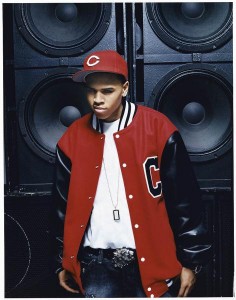Sunday Night’s Grammy Awards received a lot of attention, drawing some 39 million viewers curious to see how the National Academy of Recording Arts and Scientists would pay tribute to one of its biggest stars. Morbid as it sounds, Whitney Houston’s untimely passing the day before made the awards presentation a must-see event, garnering more than 12 million viewers over last year’s telecast and netting the second-highest ratings in the event’s history. To the Recording Academy’s credit, it took great advantage of that brighter-than-usual spotlight, honoring not just Houston and the late Etta James (who deserved more attention than she got) but a stage full of dynamic female performers, from Jennifer Hudson and Kelly Clarkson to Taylor Swift, Rihanna, Carrie Underwood, Katy Perry and Nicki Minaj.
That larger narrative was underlined by a handful of subplots that emphasized talented women overcoming adversity: the unsurprising dominance of Adele, who’d been forced to cancel tour dates twice last year due to vocal problems and ultimately underwent surgery; Perry’s vengeful tear through “Part of Me,” a “winning the breakup” kiss-off believed to be aimed at her ex Russell Brand; and Swift’s spirited performance of “Mean,” allegedly directed at one of her critics, newsletter writer/blogger Bob Lefsetz. (Minaj’s bizarre performance of “Roman Holiday,” featuring one of her alter egos, can also be counted as a moment of adversity, although it remains to be seen whether the singer will overcome the largely negative reaction.)
But like a needle scratching a record, the night’s theme of powerful women was marred by one “jarringly dissonant element,” as TIME’s James Poniewozik so succinctly put it: the Academy’s decision to share so much of its increased spotlight with R&B singer Chris Brown, who performed twice, and also won his first Grammy for Best R&B Album.
Brown has been a target of critics since assaulting his then-girlfriend Rihanna in February 2009, just before that year’s Grammy ceremony. Brown ultimately accepted a plea deal in that case and received counseling, community service and five years’ probation, as well as a restraining order requiring him to stay 50 yards away from the singer. Brown has publicly apologized for the incident and expressed his remorse, and in a perfect world, everyone would forgive him and move on, that would be the end of that.
Except that Brown’s statements of regret ring hollow in light of subsequent actions. He reportedly threw a fit in his dressing room following an interview on Good Morning America in which he was asked about the incident. And yesterday, after the likes of Miranda Lambert, Michelle Branch and Jack Osbourne spoke out about the singer’s past actions, the following message appeared on his Twitter feed: “HATE ALL U WANT BECUZ I GOT A GRAMMY Now! That’s the ultimate F**K OFF!”
Brown’s alleged Twitter rant also included the following statement: “Strange how we pick and choose who to hate!” Brown reportedly wrote. “Let me ask u this. Our society is full of rappers (which I listen to) who have sold drugs (poisoning). But yet we glorify them and imitate everything they do. Then right before the worlds eyes a man shows how he can make a Big mistake and learn from it, but still has to deal with day to day hatred! You guys love to hate!!!”
The message was quickly taken down, and a source told Radar Online that “Brown didn’t Tweet that, someone does his postings to Twitter and when he saw that he ordered it taken down immediately.”
In the spirit of fairness, let’s take that unnamed source at his/her word that Brown himself didn’t post that rant and in fact ordered it removed. Let’s also acknowledge that, yes, there are a number of drug-dealers-turned-rappers who are glorified by fans and the media. I’m sure we’re all guilty of being selective in whom we forgive and those we don’t. I know I am. I’m a big fan of Ice-T, who’s admitted to an early life of crime, and I also admire Jay-Z, who’s rapped about a similar background. Their pasts don’t bother me at all. And yet I’ve been critical of 50 Cent because of his own drug-dealing biography. Ouch.
Regardless, it’s hard to give Brown the full benefit of the doubt. The GMA incident, isolated or not, suggests a young man who bristles at having to continue to answer for a shameful occurrence in his past. I’m sure we’d all be much more willing to forgive Brown if his actions matched his words—if he devoted some of his time and fortune to domestic violence causes, and used his bully pulpit to speak out on the subject.
But that’s not the Chris Brown we see. Instead, we see a brooding young pop star who’s been given a second chance and appears annoyed whenever someone wonders whether he deserves it. We don’t see contrition; we see defensiveness. Young women who have been victims of abuse turn on the Grammys, and they see a high-profile abuser treated like royalty, as if all has been forgiven. Where is his incentive, then, to walk the walk?
Sunday’s Grammy telecast showed us a lot of strong women. It also did them, and victims of domestic violence everywhere, a disservice. And I’d argue it didn’t do Chris Brown any favors, either.

